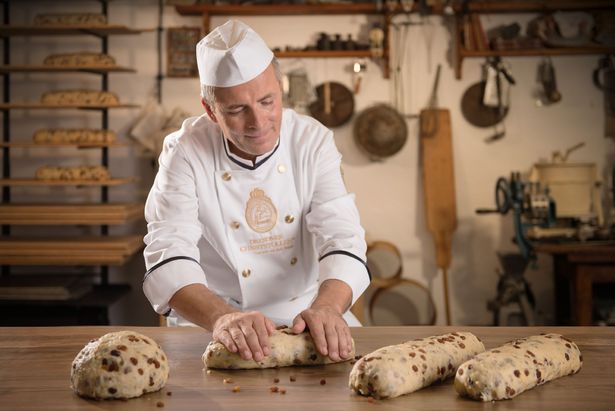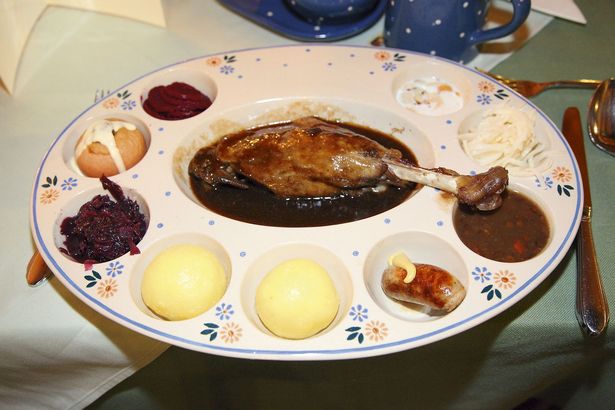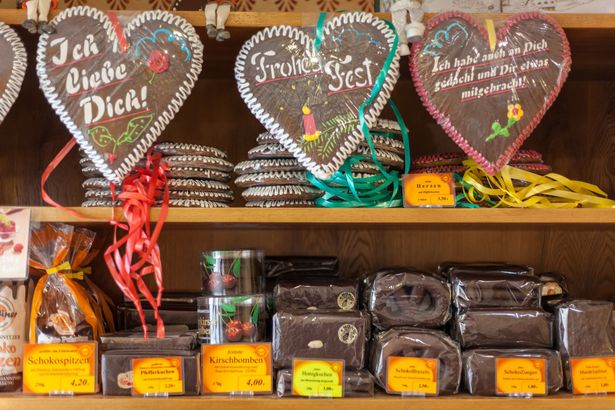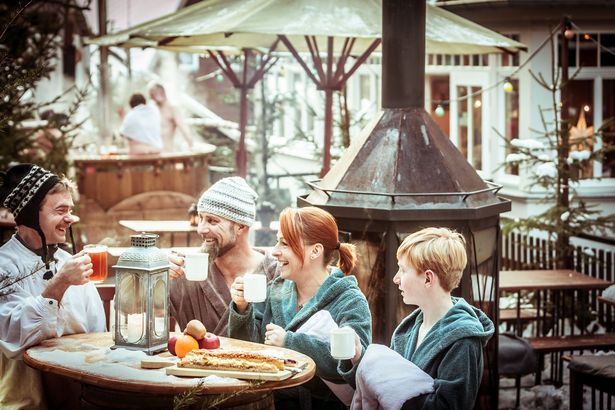Come the festive season and Saxony dishes out some of its best food. The most famous one, no doubt, is the Stollen Christmas cake, which originated in the region and is, to this day, prepared according to a special recipe. But there’s more, including a special kind of gingerbread or a traditional festive Christmas menu prepared in the Ore Mountains. What can we say – enjoy!
Where festive foodies dreams come true
How to recognise a real Dresden stollen
Germany’s Stollen Christmas cake has found fans all over the world. However, only the one from Dresden as the birthplace of this particular bake is “the real deal“. Dresdner Christstollen is unique and a registered trademark. It is made by hand and does not contain any margarine, artificial preservatives and flavourings. The following checklist indicates that a Stollen is an original and to receive the so-called „Stollen seal“ the product must contain these ingredients specified by the Stollen Protection Association:
- Rum-soaked raisins
- Butter
- Sweet and bitter almonds
- Candied orange peel and candied lemon peel
Despite these very specific instructions, every Stollen produced by roundabout 110 bakeries in Dresden has its own distinctive taste because of individual spice mixtures whose recipes are closely guarded and passed down from one generation to the next.
Tip: Take a Dresden Stollen tour featuring a bakery and Stollen Museum visit, tasting included!
Neunerlei: Saxony’s traditional Christmas dish
Neunerlei is a wonderful example for food symbolism. This Christmas meal has a long tradition in Saxony’s Ore Mountains and is prepared on Christmas Eve. It consists of nine specific elements, which is reflected in the name Neunerlei (neun = nine in German), and each of the ingredients carries meaning with a view to the new year ahead. The composition of the menu varies from village to village and from family to family, but the following are the fundamental elements included in the Neunerlei:
- Goose, turkey or rabbit meat is said to bring luck and strength.
- Herring salad is served to keep the small change coming in.
- Green dumplings promise prosperity.
- Lentils stand for physical growth.
- Sauerkraut brings a good harvest.
- Celery means potency and fertility.
- Beetroot brings beauty.
- Baked apples ensure health.
- Bread and salt must not be missing because otherwise they will be missing throughout the entire new year.
Tip: Try Neunerlei in one of the many restaurants in the Ore Mountains that serve this special meal throughout the festive season.
Gingerbread the Saxon way
Pulsnitz, a small town between Bautzen and Dresden, is also know as the “gingerbread town“ because a special local version of these Christmas favourites has been produced here since 1558. Known as Pulsnitzer Pfefferkuchen in German, they are made of a fat-free dough which is left to mature for months before being enriched with cinnamon, cardamom, fennel or nutmeg, plus a few more spices that remain a secret of the local bakers.
Tip: Try the Pulsnitzer Spitzen gingerbread variety, which is filled with jam and covered in chocolate!
The cradle of mulled wine
The oldest recorded German mulled wine recipe is thought to be from Radebeul in Saxony. In 1834, when a local count felt that he was in need for a drink that would make him forget the cold in his Baroque castle and warm his heart, he came up with the ingenious idea of adding saffron, aniseed, cinnamon and pomegranate to white wine and warm the whole thing up. And the rest is history, as they say …
Tip: Warm up with a cup of mulled wine at Dresden‘s Striezelmarkt, the world's oldest Christmas market!




